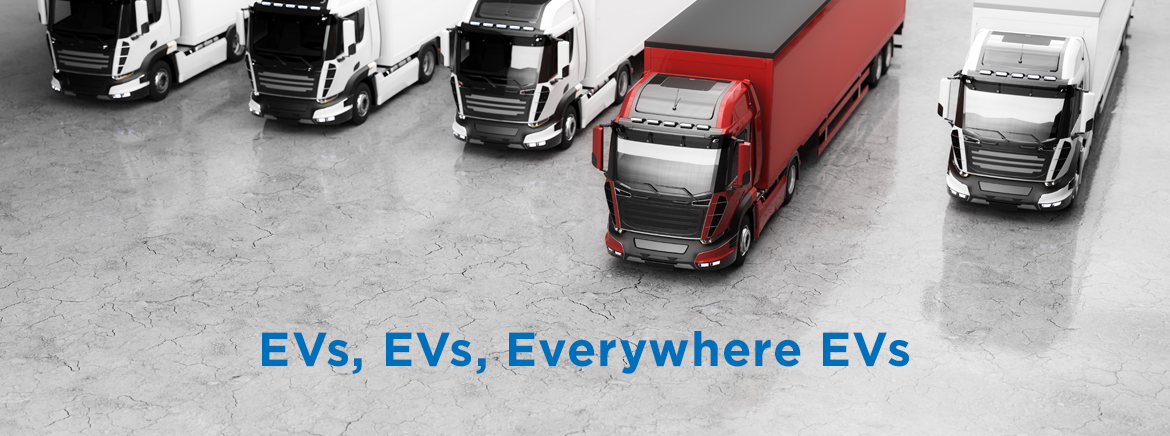Energy Insider – 3rd Quarter 2021
Odds are over the last year, you have seen a growing number of electric vehicles (EVs) on the road. EVs have become more than just a fad of the environmentally conscious. It is an evolving technology that is being enjoyed by those looking for a new family vehicle and even sports car enthusiasts.
Just this month, EV startup Riviana announced it had beaten other industry giants to become the first automaker to produce and sell the first electric pickup. Quite frankly, EV technology is far superior to that of internal combustion engine (ICE) vehicles and has, at a minimum, raised the bar on what consumers are looking for in a new ride.
In past publications of the Energy Insider, we have reviewed many of the benefits that this technology provides. We have covered the maintenance savings, convenience of charging at night instead of worrying about a fluctuating, volatile fuel market, the warranty improvements provided by manufacturers, range increases, and tax credits available. In this edition, we shed light on some lesser-known EVs – the medium and heavy-duty market as well as the utility market.
All-electric semi-trucks are coming soon. Volvo, Peterbilt, Kenworth, Tesla, Cummins and Freightliner along with other manufacturers promise tractor trailers are becoming a reality. This month, the North American Council for Freight Efficiency (NACFE) is conducting Run on Less – Electric (RoL-E), an electric truck technology demonstration with big names in the trucking industry. The three-week demonstration will showcase electric trucks in everyday operation. Visit runonless.com to learn more.
Production has started on medium duty (Class 6-7) trucks with ranges of approximately 230 miles on a full charge and a 26,000 – 33,000-pound gross vehicle weight rating (GVWR) as well as heavy duty (Class 8) trucks with ranges of approximately 250 miles and a max gross combined weight (GCW) of 82,000 pounds. These trucks can take 1-8 hours for a full charge depending on the charger and have around 300 HP and 500 HP, respectively. These cutting-edge trucks are ideal for short hauls but a range from 300 – 500 miles is anticipated soon.
Utility vehicles are also available as EVs. Warehouses are now utilizing this technology for tow tractors, burden carriers, stock chasers and forklifts. EV technology provides the same benefits as passenger vehicles and minimizes the amount of exhaust and noise of a traditional ICE vehicle. EV technologies offer beneficial additions and contribute to a healthier and cleaner working environment.
In short, the EV market is developing rapidly, and all indicators point toward an evolution of converting workforce fleets to electric vehicles. Are there transportation needs you have today or that will be coming soon that make transitioning to EVs from ICEs beneficial? Does such a transition make financial sense to your business or meet an environmental goal? We encourage the discussion with your Key Accounts Consultant to see if the time is near and if electric infrastructure upgrades are required at your facility to support EV needs.
From utility vehicles to semi-trucks, EVs are becoming more prevalent than ever. There is a plethora of options available and more on the way. Who knows, the next one we see may be the new addition to your fleet!
![]()

JEFF LIGHT
Manager of Key Accounts & Revenue Programs
OFFICE: (352) 569-9787
CELL: (352) 250-2863
jeff.light@secoenergy.com

HANK BOLDUC
Key Accounts Consultant
OFFICE: (352) 569-9789
CELL: (352) 303-3546
hank.bolduc@secoenergy.com

RYON MEYERS
Key Accounts Consultant
OFFICE: (352) 569-9781
CELL: (352) 636-9593
ryon.meyers@secoenergy.com

DUSTIN MERRITT
Key Accounts Consultant
OFFICE: (352) 569-9782
CELL: (352) 303-3183
dustin.merritt@secoenergy.com






